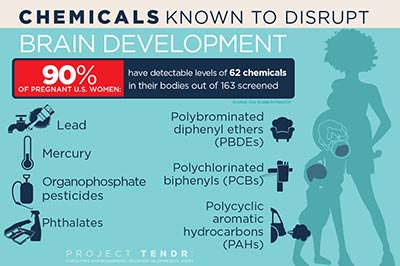The National Institutes of Health announced $2.9 million in new funding to the University of Illinois and the University of California, San Francisco for studies to determine how maternal exposure to stress and to hormone-disrupting chemicals during pregnancy affect birth outcomes and child brain development.
The funding is for the first two years of what is expected to be a seven-year effort, with more funding as the work progresses. The support will allow the researchers, who already are engaged in separate studies, to combine their efforts and expand the pool of subjects they follow. Their work will be part of a national, seven-year initiative involving approximately 50,000 children from existing studies. The NIH has committed $157 million this fiscal year to the larger initiative, which is called Environmental Influences on Child Health Outcomes.
U. of I. comparative biosciences professor Susan Schantz is the lead on the grant to Illinois and UCSF. She is the director of the Children’s Environmental Health Research Center at the Beckman Institute for Advanced Science and Technology at Illinois. Since 2010, Schantz and her colleagues have studied how women’s exposure to hormone-disrupting chemicals during pregnancy affects infant and child brain development, a project called Illinois Kids Development Study, or IKIDS.
“We are really excited that our IKIDS study will be part of a nationwide effort to study environmental influences on child health outcomes,” Schantz said. The UCSF team has been studying how maternal stress affects child health.

In the new research, both teams will study the effects of chemical exposures and maternal stress on child brain development and health, expanding their pool of research subjects to about 1,400 children and their families.
“Dr. Schantz has a long track record of leadership in directing and publicizing research on the effects of chemical exposures on child neurodevelopment, so it’s no surprise that she has been tapped for this important new research initiative,” said U. of I. Interim Chancellor Barb Wilson. “We are excited about the continued advances Sue and her colleagues will make in this crucial area.”
Editor’s notes:
To reach Susan Schantz, call 217-333-6230; email schantz@illinois.edu.
To reach UCSF research lead Dr. Tracey J. Woodruff, call Laura Kurtzman at 415-476-3163; email: laura.kurtzman@ucsf.edu.
